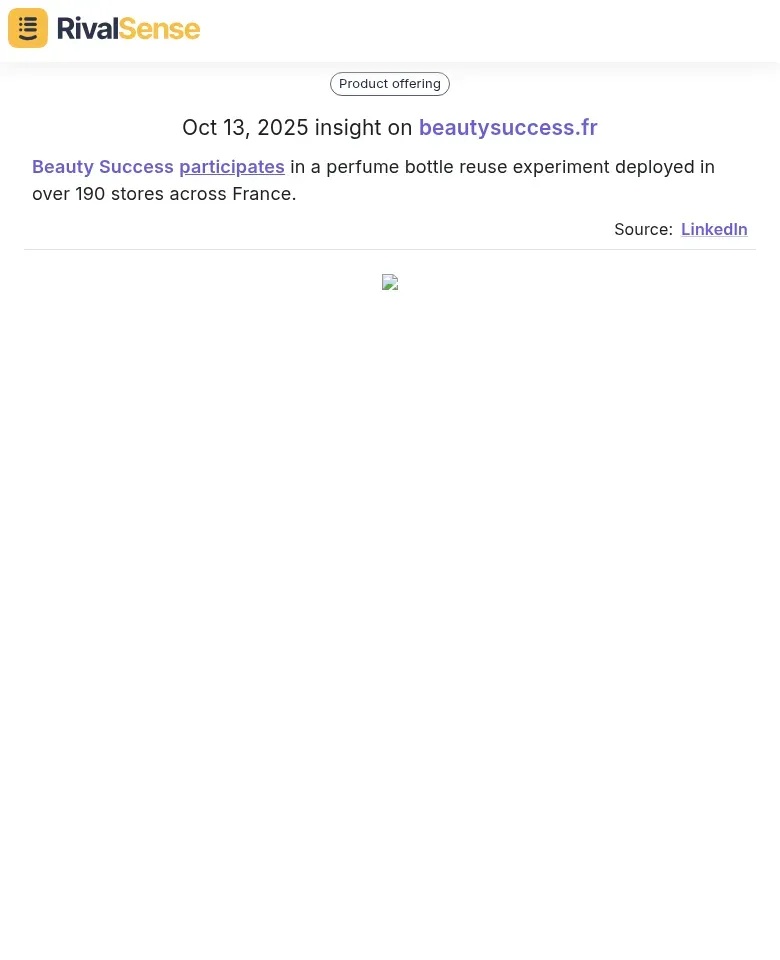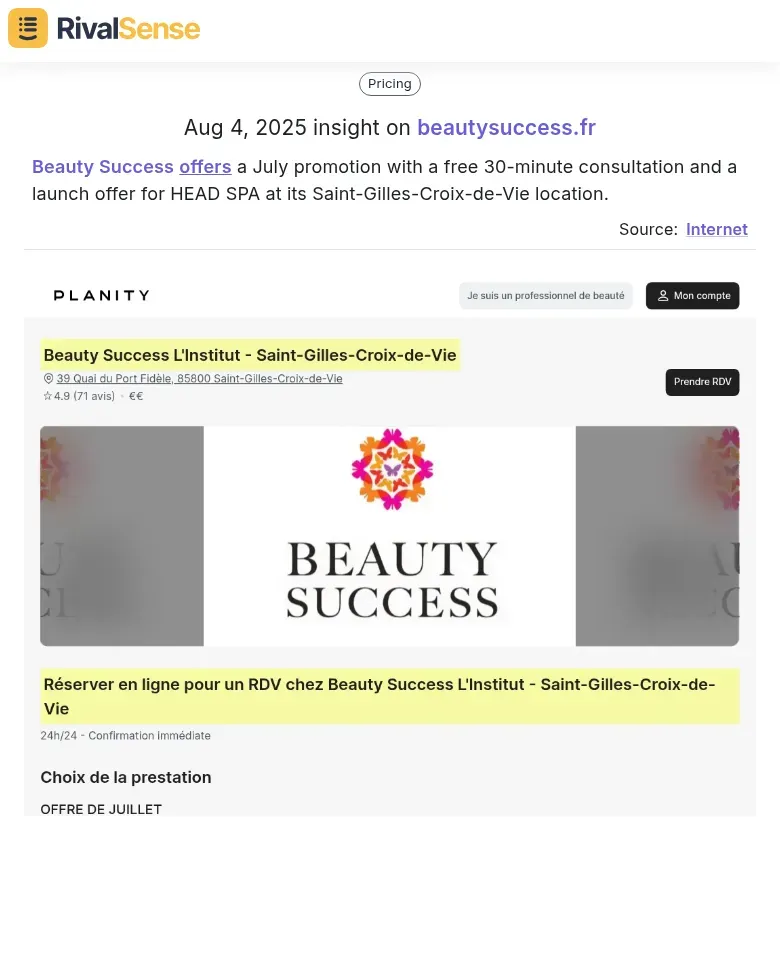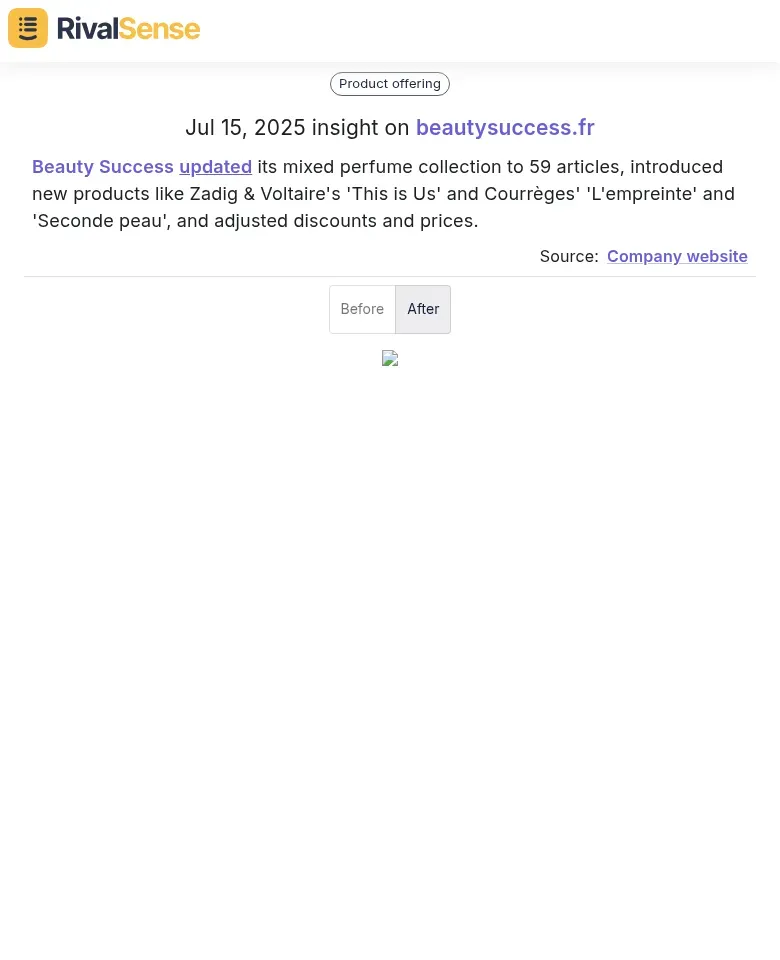Best Practices for Beauty Retail Key Account Health Dashboards
Key account health dashboards are centralized platforms that track performance metrics—like sales, inventory turnover, and customer engagement—for beauty retailers' most valuable accounts. In competitive beauty markets, these dashboards provide real-time data, enabling swift strategic decisions. For example, a dashboard might flag declining repeat purchase rates at a major retailer, prompting targeted promotions to boost loyalty. They monitor customer engagement through metrics like review scores and social media mentions, sales trends via sell-through rates and basket size, and inventory health via stock levels and sell-out data.
Practical steps:
- ✅ Integrate live data feeds from POS systems and CRM tools
- ✅ Set up alerts for metrics dropping below thresholds (e.g., stockouts)
- ✅ Use visualizations like heat maps to spot regional trends
Tips: Focus on 5-10 key metrics to avoid clutter, and regularly update dashboards to reflect market shifts. This ensures beauty brands can proactively manage accounts, optimize assortments, and stay ahead of rivals.
Integrating Sustainability Initiatives into Dashboard Metrics
Integrating sustainability initiatives into your beauty retail key account health dashboard transforms eco-friendly efforts from abstract goals into measurable business drivers. By tracking metrics like participation rates and customer opt-ins, you can quantify the impact of green programs and adjust strategies accordingly. For instance, RivalSense tracked that Beauty Success participates in a perfume bottle reuse experiment deployed in over 190 stores across France. This type of insight is valuable for benchmarking competitor sustainability efforts and identifying trends to inform your own initiatives.

Measure impact through KPIs: monitor social sentiment scores for brand reputation, track repeat purchase rates of eco-conscious customers, and quantify loyalty program engagement tied to green initiatives. Use location-based metrics to identify top-performing stores in sustainability participation and replicate their strategies.
Practical steps:
- ✅ Add a 'Sustainability Metrics' widget showing bottle return rates vs. targets
- ✅ Set up automated alerts for drops in eco-program participation
- ✅ Correlate sustainability scores with customer lifetime value in dashboard analytics
Tip: Benchmark against industry leaders—if 40% of stores achieve high recycling rates, aim to match or exceed this in your dashboard goals.
Leveraging Promotional Campaigns for Account Growth
In beauty retail, promotional campaigns like free consultations are powerful drivers of account growth, but their impact must be measured precisely. Use your key account health dashboard to analyze how these promotions influence customer acquisition and retention. For example, RivalSense reported that Beauty Success offers a July promotion with a free 30-minute consultation and a launch offer for HEAD SPA at its Saint-Gilles-Croix-de-Vie location. Tracking such insights helps you understand competitor marketing tactics and refine your own campaign timing and targeting.

Track metrics such as redemption rates, sales lift, and repeat purchase frequency post-promotion to gauge effectiveness. If a free consultation campaign leads to a 20% increase in new customers and a 15% boost in retention, it's a win. Align promotions with seasonal trends—think holiday gift sets or summer skincare bundles—and local market demands, like region-specific product preferences.
Practical steps:
- ✅ Set up dashboard alerts for low redemption rates
- ✅ Compare promotional periods with baseline sales to calculate lift
- ✅ Use A/B testing in dashboards to refine offers
This data-driven approach ensures campaigns resonate, driving sustained account growth.
Monitoring Product Portfolio Updates and Pricing Strategies
Monitoring product portfolio updates and pricing strategies is crucial for maintaining competitive edge in beauty retail key account health. Incorporate competitor insights by tracking product launches and collection expansions via dashboards—this helps you spot gaps and opportunities in your assortment. For instance, RivalSense highlighted that Beauty Success updated its mixed perfume collection to 59 articles, introduced new products like Zadig & Voltaire's 'This is Us' and Courrèges' 'L'empreinte' and 'Seconde peau', and adjusted discounts and prices. Such insights are valuable for staying informed on competitor innovation and pricing shifts, allowing you to adjust your strategies proactively.

Track changes in discounts and pricing by monitoring competitor promotions and price drops. Use dashboards to evaluate new product performance by integrating sales data—steps include setting KPIs for sell-through rates, customer reviews, and return rates. Adjust assortments based on this data, dropping underperformers and expanding winners.
Checklist for effective monitoring:
- 🔍 Weekly price scans
- 🔍 Discount tracking
- 🔍 Margin analysis
Practical tip: Automate data feeds to update dashboards in real-time, ensuring quick responses to market shifts.
Best Practices for Dashboard Design and Implementation
Designing effective beauty retail key account health dashboards requires strategic implementation to cater to diverse user needs and ensure data accuracy. Start by creating customizable views tailored to different stakeholders—executives need high-level KPIs like overall sales performance and market share, while store managers require granular data on inventory turnover and customer satisfaction scores. Ensure seamless data integration from POS systems, CRM platforms, and supply chain databases to maintain accuracy; use automated validation checks to flag discrepancies.
Practical steps:
- ✅ Map stakeholder needs to dashboard modules
- ✅ Use APIs for real-time data sync
- ✅ Set threshold-based alerts (e.g., sales decline >10% triggers notification)
Implement automated alerts for critical metrics such as sudden drops in sales, stockouts, or negative customer feedback, enabling proactive management. Include tips like color-coding for quick insights (green for healthy, red for issues) and drill-down capabilities for root cause analysis. This approach fosters data-driven decisions and strengthens account relationships.
Case Studies and Future Trends in Beauty Retail Dashboards
Leading beauty retailers like Sephora and Ulta have transformed key account management with dynamic dashboards, demonstrating the power of data-driven strategies in competitive markets. Sephora's dashboard integrates real-time sales data, inventory levels, and customer sentiment, enabling personalized promotions that boosted high-value client retention by 18%. Ulta's platform tracks competitor pricing and social media buzz, allowing swift strategy adjustments that increased market share by 12%. These examples highlight how dashboards drive tangible outcomes through informed decision-making.
Emerging trends are reshaping dashboards with AI and predictive analytics, offering new opportunities for efficiency and foresight. AI-powered tools analyze purchase patterns to forecast demand, reducing stockouts by 25%, while predictive models identify at-risk accounts for proactive interventions. To future-proof your dashboard, focus on adaptability: incorporate real-time social listening to monitor shifting consumer preferences, use modular designs for easy updates, and prioritize mobile accessibility.
Steps for success:
- ✅ Start with clear KPIs like customer lifetime value
- ✅ Integrate diverse data sources (e.g., CRM, web analytics)
- ✅ Train teams on interpreting insights
- ✅ Regularly review and refine based on feedback
By embracing these practices, businesses can stay ahead in the fast-evolving beauty retail landscape.
Ready to elevate your competitor tracking? Try RivalSense for free and get your first competitor report today to gain actionable insights into product launches, pricing changes, and more—all delivered in a weekly email!
📚 Read more
👉 Actionable Guide to Regulatory Competitor Insights for Key Accounts
👉 How SentinelOne's Event Strategy Offers Valuable Competitor Insights
👉 Key Account Management Software in 2025: The Ultimate Guide for Business Leaders
